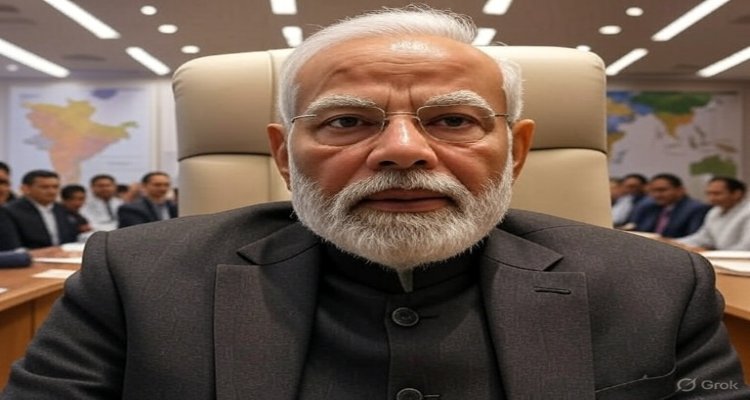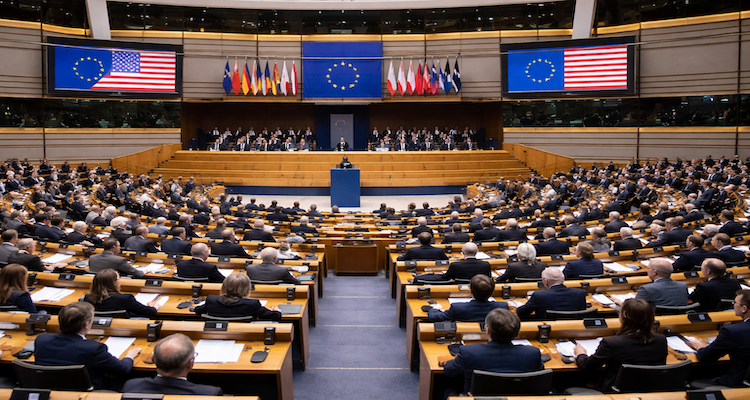PM Modi Chairs 49th PRAGATI Meeting: Fast-Tracking India’s Growth Agenda

Prime Minister Narendra Modi chaired the 49th PRAGATI meeting, reviewing key infrastructure projects worth ₹65,000 crore to accelerate development across 15 states.
Introduction
At a time when India’s developmental journey hinges on swift execution of large-scale projects, Prime Minister Narendra Modi chaired the 49th edition of PRAGATI (Pro-Active Governance and Timely Implementation) on September 24. Designed to remove roadblocks, address governance challenges, and enable faster project delivery, PRAGATI has emerged as a crucial instrument of cooperative federalism, bridging the Centre and the states on one common platform.
Context & Background
Launched in March 2015, PRAGATI is an ICT-based multi-modal initiative that integrates digital data management, video conferencing, and geo-spatial technology. Conceptualized by the Prime Minister’s Office (PMO) with technical support from the National Informatics Centre (NIC), the platform was envisioned to bring efficiency, accountability, and transparency to governance.
PRAGATI functions as a three-tier system involving the PMO, union government secretaries, and state chief secretaries. Unlike conventional bureaucratic structures, it allows the top decision-maker—the Prime Minister—to directly interact with officers responsible for execution, while also factoring in state-level concerns. This approach eliminates delays and fosters a culture of responsibility and collaboration.
The broad objectives of PRAGATI cover three critical domains:
-
Grievance redressal for citizens
-
Effective programme implementation
-
Real-time project monitoring
Main Developments
In the latest 49th meeting, the Prime Minister reviewed eight critical infrastructure projects cutting across vital sectors such as mines, railways, water resources, industrial corridors, and power. Collectively, these projects span across 15 states and Union Territories, representing a cumulative investment of over ₹65,000 crore.
According to the PMO briefing, the sectors under review are key growth engines of India’s $5 trillion economy vision. For instance, the railways and power projects are expected to enhance connectivity and boost industrial competitiveness, while investments in water-resource projects target sustainable development for agriculture and domestic use.
The Prime Minister emphasized the need for aligning project execution with strict timelines, urging central ministries and state governments to work in synergy. His call reinforced the objective of PRAGATI—to transform planning into quick ground-level delivery through close monitoring.
Expert Insight & Public Reaction
Governance experts view PRAGATI as one of the most impactful innovations in India’s e-governance framework. “India faces a chronic issue of project delays, leading to cost overruns and wasted public resources. PRAGATI is unique because it not only monitors progress but also brings accountability directly at the highest political level,” said Dr. Sudhir Kumar, a policy analyst specializing in public administration.
State officials have also acknowledged the role of the platform in reducing bottlenecks. By allowing direct interaction with the Prime Minister, state bureaucracies feel motivated to fast-track pending clearances. Public sentiment too has generally been positive, especially regarding grievance redressal, where PRAGATI provides a direct channel for addressing citizen issues that would otherwise be lost in bureaucratic backlog.
Impact & Implications
The cumulative investment of ₹65,000 crore in ongoing projects highlights the scale at which PRAGATI operates. The implications are manifold:
-
Economic Push: Expedited completion of big-ticket infrastructure will boost job creation, regional trade, and industrial growth.
-
Social Benefits: Projects related to water resources and power will directly impact citizens, ensuring better quality of life.
-
Cooperative Federalism Strengthened: The platform helps states and the Centre to work in harmony, bridging political and administrative divides.
-
Governance Reforms: PRAGATI sets a standard for digital-era governance in India, blending technology with accountability.
However, policy experts caution that the success of PRAGATI ultimately depends on follow-ups and strict adherence to deadlines beyond the review meetings. “The system is only as strong as its groundwork execution,” said Prerna Jain, a researcher in governance studies, highlighting that implementation challenges remain the true test.
Conclusion
The 49th meeting of PRAGATI once again demonstrated the government’s resolve to ensure speed, transparency, and effectiveness in governance. By blending technology with political will, the platform has transformed into a symbol of accountable governance in India. As more projects get streamlined under this mechanism, the real beneficiaries will be citizens across states who stand to gain from enhanced infrastructure, better services, and efficient government delivery systems.
As India prepares for heightened global competition and ambitious developmental targets, PRAGATI is not just a governance dashboard—it is a statement of intent, reaffirming that accountability and timeliness are non-negotiable in the path of nation-building.
Disclaimer : This article is for informational and educational purposes only. All data and references are sourced from official press releases and public records.










